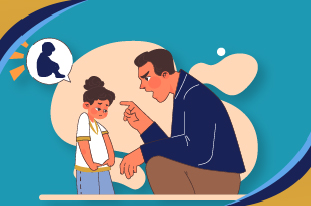Every person deserves to live a happy life. However, some of us experience different types of trauma, specifically relational trauma. However, trauma comes in several different forms and not every person experiences the same traumatic memories.
Trauma is always categorized based on its nature and its impact. In this blog post, you will learn several new things about relational trauma, how it is different from other types of traumas, and what effective ways to manage it.
What Is Relational Trauma?
Relational trauma, most commonly known as attachment trauma, can develop in many forms. Relational trauma in marriage refers to deep emotional wounds caused by repeated patterns of betrayal or neglect, impacting trust and intimacy between partners. Moreover, relational trauma manifests in consistent, longer-duration experiences of emotional, mental, or bodily abuse, and disrespect among important relationships.
Learn More: Trauma Brain Vs Normal Brain: How Trauma Affects The Way We Live
Some Common Signs Of Relational Trauma
If you start to feel the following signs then you might have begun to experience relational trauma:
- Considering yourself responsible for other’s emotional well-being
- Hypervigilance in monitoring the mood of others
- Fear of failure
- Fear of abandonment
- Self-sufficiency
- Anxiety
- Depression
- Lowered self-esteem
- Shame
- Guilt
- Issues in trusting others
Common Types Of Relational Trauma
Relational trauma is not limited to just one type. Several types of relational traumas are characterized by certain signs.
Complex Trauma:
Complex trauma comprises multiple traumas for an extended duration. Some of the common examples are continuous abuse. This type of trauma also leaves behind a significant impact on a person’s mental, emotional, and physical potential. Moreover, complex trauma is linked with the onset of depression, anxiety, and PTSD.
Interpersonal Trauma:
This type of trauma usually manifests in people living in an abusive relationship. Now, this relationship can be with a close family member or a partner. Interpersonal trauma is one of the most traumatizing experiences as it sometimes proves to be draining to recover from. This happens due to the presence of a range of emotions and mechanisms like power fluctuations, manipulation, and control.

Attachment Trauma:
This particular type of trauma affects a person with disruptions while getting attached to their close relationships. Some of the typical instances are the absence of a parent, or in cases where the caregiver is abusive. Furthermore, it is an enduring type of trauma that directly affects the well-being of the sufferer.
Betrayal Trauma:
The manifestation of such type of trauma happens when a normal person experiences an extreme betrayal from their close and trusted person. This person can be a friend, a close family member, or even your partner. Betrayal trauma is so severe that it can completely disturb the senses and way of perception of the affected person such as they feel a loss of sense, anger outbursts, and grief.
Learn More: The Hidden Mental Scars of Childhood Trauma in Adults
What Are The Common Causes Of Relational Trauma?
There is no single cause of the onset of relational trauma. However, it is manifested due to several factors and sometimes due to the combination of these factors. Some of the common causes are as follows:
Abandonment:
Abandonment is a factor that no one in life ever wants to experience. However, some unfortunate people face such difficulties in their lives. The sad part is that this comes from the most important relationship that an individual has with parents. There can be several reasons such as the sudden death of a parent, divorce, war, and many other factors that lead to the development of relational trauma.
Additionally, sometimes the abandonment is not physical instead it is mental. Your parent or caregiver is present physically but you feel emotionally abandoned. This happens when a person or child does not have emotional support from the parents.
There can be several factors that lead to this behavior in parents. Some of them are as follows:
- Parent’s mental condition
- Drug intake
- Domestic violence
- Strict working hours
- Overwhelming behavior due to child’s needs
- Caring for another family member more than the child
No matter if the child is understanding, the lack of emotional support stays there and leads to relational trauma.
Enmeshment:
Emotional enmeshment is another leading reason for relational trauma. This often happens due to the expectation of a parent that their child will fill their emotional needs, which ultimately makes the child crave for his needs to be fulfilled.
Enmeshment also develops when a caregiver or a parent is overly involved in the affected child, causing them to feel suffocated. The major factor in such a situation is that the parent or caregiver does not respect the child’s boundaries. Furthermore, such parents do not allow their children to live independently and enjoy their lives to the fullest. This ultimately affects the self-esteem of such children.
Abuse and Neglect:
One of the leading reasons causing relational trauma in children is being abused or neglected by the caregiver or parent. This can lead to demotivation in younger children ultimately making them difficult personalities.
Learn More: Understanding The Different Types Of Trauma
Effective Ways To Manage Relational Trauma In Adults
Relational trauma can be overwhelming to deal with. However, relational trauma recovery is possible with the help of some effective therapeutic approaches. Some of the commonly used treatment methods are as follows:
Psychiatric Medications:
The first-line treatment approach is to stabilize the current mental condition of the patients. There are particular medications for treating relational trauma such as antidepressants or anti-anxiety medications. Moreover, psychiatric medications are more effective when combined with other forms of mental health treatments such as most commonly used therapy and counseling.
Cognitive Behavioral Therapy:
This is a type of psychotherapy that primarily emphasizes changing negative thought patterns and behaviors. CBT can be best for overcoming the rigid signs of anxiety, mood disorders, and depression.
Dialectical Behavior Therapy (DBT):
The primary goal of such a therapy is to develop coping techniques for solving interpersonal issues of the affected people. This is the best approach for people dealing with relationship issues or emotional dysregulations.
Psychodynamic Therapy:
The main focus of this type of relational trauma treatment is to help the patient identify their unconscious disturbing thoughts and related feelings. People suffering from unresolved issues or conflicts with their social relationships can get the most out of this particular therapy.
Group Therapy:
This relational trauma therapy works by making the affected person sit with people experiencing the same signs. Additionally, such people have experienced similar trauma. Group therapy can be beneficial for individuals with social withdrawal.
Eye Movement Desensitization And Reprocessing (EMDR):
Nowadays mental health problems require advanced mental health treatment approaches. Therefore, based on sample positive feedback, experts have developed an innovative form of psychotherapy that involves guided eye movements to assist suffering people in successfully and completely processing the traumatic event and all the negative memories acting as the triggers of the event. PTSD is one of the stressful mental health disorders that is efficiently dealt with with the help of EMDR.
Concluding Remarks!
Trauma can be overwhelming. There are several types of traumas but one of the most severe ones is relational trauma. Relational trauma is also known as attachment trauma. The common signs include fear of failure, fear of abandonment, self-sufficiency, anxiety, depression, lowered self-esteem, shame, guilt, and trust issues. There can be several reasons for the onset of relational trauma such as enmeshment, abuse, and abandonment. However, the good news is that Orange Coast Psychiatry provides you with the best and most effective treatment options such as psychiatric medications, cognitive behavioral therapy, dialectical behavioral therapy, psychodynamic therapy, group therapy, and eye movement desensitization and reprocessing. Consult with our mental health experts today and attain mental peace from relation trauma.


















